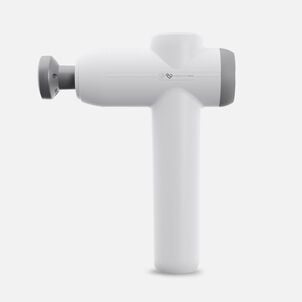Funding your HSA over other retirement plans

Investing is about starting early and contributing often. Due to the magic of compound interest, a small amount invested today can end up being more valuable than a larger amount invested ten years from now.
But making the most of your contributions is about investing smartly. You need to prioritize where your hard-earned money goes, so you can maximize the earning potential of your portfolio. If investing is like planting an orchard in the hopes of one day collecting apples, investing smartly is like choosing the most fertile soil.
Of course, we're not financial pros, so be sure to consult with a licensed professional before making any decisions about your own finances. But based on our own experiences, here's where we think HSA contributions fit into the mix.
Figure out your priorities
When it comes to investing, there's only one thing you absolutely need to prioritize over starting an HSA: take advantage of any matching contributions in your 401(k). If your employer has a sponsored retirement plan, you should contribute enough to get the match. If they match 100% up to 5% of your salary, you should consider contributing 5% of your salary before starting an HSA.
Matching contributions are free money you can't get back. No matter how enticing an HSA is, you should probably get the matching money first.
Why you should prioritize HSA contributions
When choosing a dedicated retirement plan, you usually have to pick between a Roth IRA or traditional account. A Roth account allows users to withdraw money tax-free in retirement, while a traditional account lets investors deduct contributions on their taxes.
Deciding between a Roth and traditional account can be a complicated decision, but that's where an HSA comes in. An HSA combines the two best elements of a Roth and traditional retirement account.
Contributions to an HSA are tax-deductible, no matter your income bracket. Withdrawals are tax-free, and you don't have to wait until a certain age to take money out of an HSA.
This latter benefit is especially valuable for those who retire before they're eligible for Medicare. Healthcare costs can be extremely expensive for early retirees, so having money in an HSA will offset those costs.
You can also invest funds in your HSA just like you would invest an IRA or 401(k). You can pick from a variety of HSA providers, many of whom have low trading fees and a large list of investments. Earnings from those investments will also grow tax-free.
After you turn 65, you can use funds in an HSA for any purpose. You'll just pay income tax based on your bracket, similar to a traditional retirement account.
One notable downside
When you have an IRA or 401k, you can withdraw the money in retirement for any purpose. You can use it to pay for a vacation, donate to charity or splurge on presents for your grandkids.
Money in an HSA can only be used for qualified medical expenses. Even the earnings that come from investing your HSA should still be used for those IRS-sanctioned expenses. That's the only downside to prioritizing your HSA over other retirement accounts, although your medical expenses in retirement will likely be significant enough to justify a well-stocked HSA.


.png)














